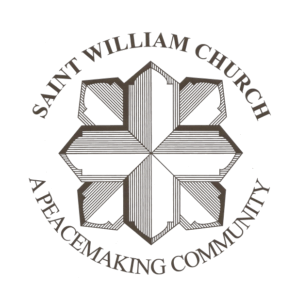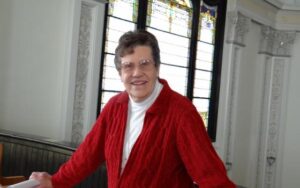We do belong to one another

On November 16, we observed the anniversary of the assassination of six Jesuit priests, their housekeeper, and her daughter at El Salvador’s University of Central America (UCA). Under the leadership of UCA president Fr. Ignacio Ellacuría, SJ, who was among those killed that night, the university had become a bastion of vocal opposition to the rampant human rights violations being carried out throughout the country at the hands of the US-backed Salvadoran military.
Shortly after the assassinations, US Jesuit Fr. Dean Brackley left a teaching post at Fordham University to join the faculty at the UCA alongside five other Jesuits from around the world in taking up the risky work of the slain priests. He would remain at the UCA until his death in 2011 from pancreatic cancer. Over the course of the twenty years he spent in El Salvador, he dedicated himself to teaching theology to college students, educating pilgrims from around the world about the legacy of his predecessors, and ministering in surrounding rural communities – which, despite the civil war’s formal conclusion in 1992, continued to face abject poverty and violence.
It was against this backdrop that Dean Brackley wrote a book that has become revered in our household, The Call to Discernment in Troubled Times: New Perspectives on the Transformative Wisdom of Ignatius of Loyola. Brackley and the Salvadoran people who claimed him as their own were certainly no strangers to troubled times. My husband always brings his copy along when we go on retreat, or when we find we’re at risk of losing our footing.
I picked it up again last week, wondering – are we ever not in troubled times?
Lately the stakes feel imminent and consequential. As someone formed to value democratic institutions, I fear for the erosion in unity that we’ve witnessed over my lifetime which may be yet accelerated in the lifetime of my children.
The call to continue to discern is not to say that we should be forever indecisive. But rather that we should stay open to where the trouble is, so we know where to open our hearts, plant our feet and roll up our sleeves.
Where is the trouble? The synod journey in the US echoed an ache in Catholics about the divisions that continue to plague us – the polarization that turns us into enemies, the resistance to hear from one another across the growing chasms in American public life.
What we have experienced on the synodal journey offers a counter witness and a reason for hope. This is testified to in the final document (available in English here): deep listening and encounter can lead to conversion and to building trust. Committing to stay around the table with each other, reminds us that we do belong to one another even as a global community. We share in responsibility for the mission as equal members in the Body of Christ: to care for our common home, to welcome the stranger, to walk closely with the poor, to practice the works of mercy, and to let the Gospel light our feet in the way of peace. Theologian and DD Advisor Cecilia González-Andrieu eloquently gives imagination for how we might do that in her recent essay for America “A Spiritual Response to the Election: What matters for young people, our faith and the future.”
The synodal path is remarkable, if humbly so. The final document was received into the Church’s magisterial teaching at the end of October. And our US Bishops overwhelmingly ratified a proposal to create a task force for implementing the document at their recent November meeting. It may be slow going, but the Church is charting new pathways for expanded participation for all the baptized, for greater accountability, and for a diaconate oriented on mission and grounded in the peripheries.
The synod created structural pathways where women were heard, hearts were opened, and the question of women’s diaconal ministry remains alive: “the discernment needs to continue.” (Paragraph 60, reproduced in full below)
Our core mission as DD – to serve the discernment of our Church on this question – will continue too. And in the meantime, we do not turn away from the needs of our communities and our nation. We remember that we are not without resources to help us each and discern together in troubled times.
Scriptures speak to many troubled times faced by our ancestors in faith. The people of God have been here before – we have their prayer book. The Word of God can continue to be a source of inspiration – with psalms of lament and rage, along with promise and hope. And we can be ever more courageous proclaimers of the Word!
We have continued our work to develop a formation program for Catholic Women Preachers and Ministers of the Word. I am excited to announce to you that Lisa Orchen will serve as the Program Director for this initiative, which we are launching in 2025 in collaboration with the Center for Spirituality at Saint Mary’s College.
Lisa is a humble, diligent worker in the vineyard, who brings careful attention and love for those who will participate in every aspect of this formation program. Her decades of experience in ministry will guide the work of growing a community who can nourish the vocation and craft of preaching – to in turn nourish the people of God.
As a way to begin to get to know the community of Discerning Deacons, Lisa has prepared two opportunities for the Discerning Deacons community this Advent. She will host three services of evening prayer, featuring participants from the Catholic Women Preaching Circle who will break open the word for us. Additionally, Lisa, in collaboration with Suzanne Bregman, has a daily advent devotional which you can subscribe to here. These concise reflections are paired with images and prompts for spiritual reflection which can be fodder for discernment.
Let me again name how grateful I am to be on this road with fellow discerners, who share a diaconal heart to serve humanity as repairers of the breach.


